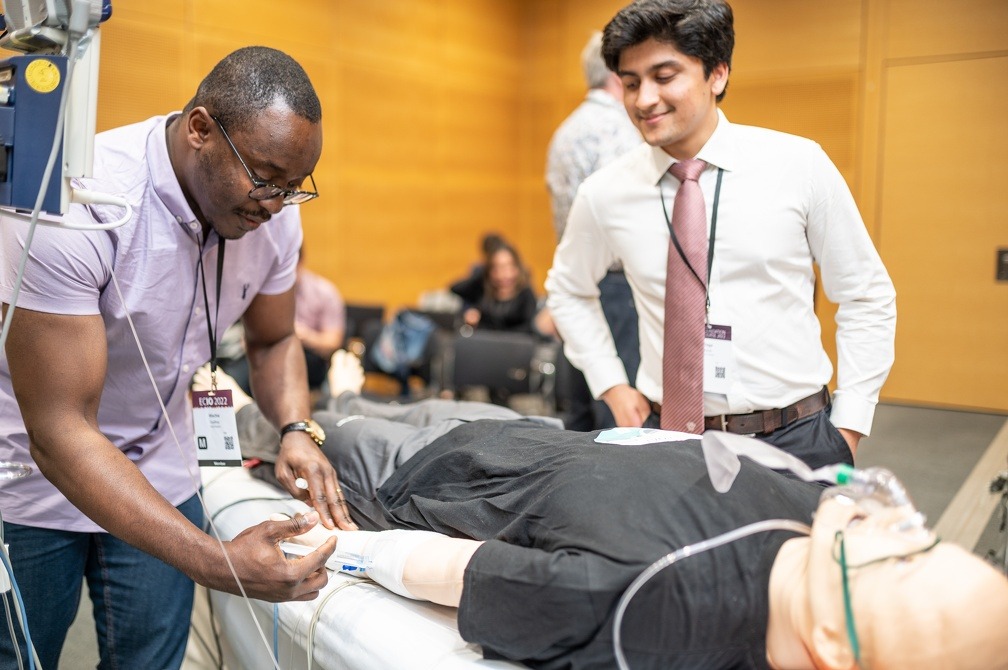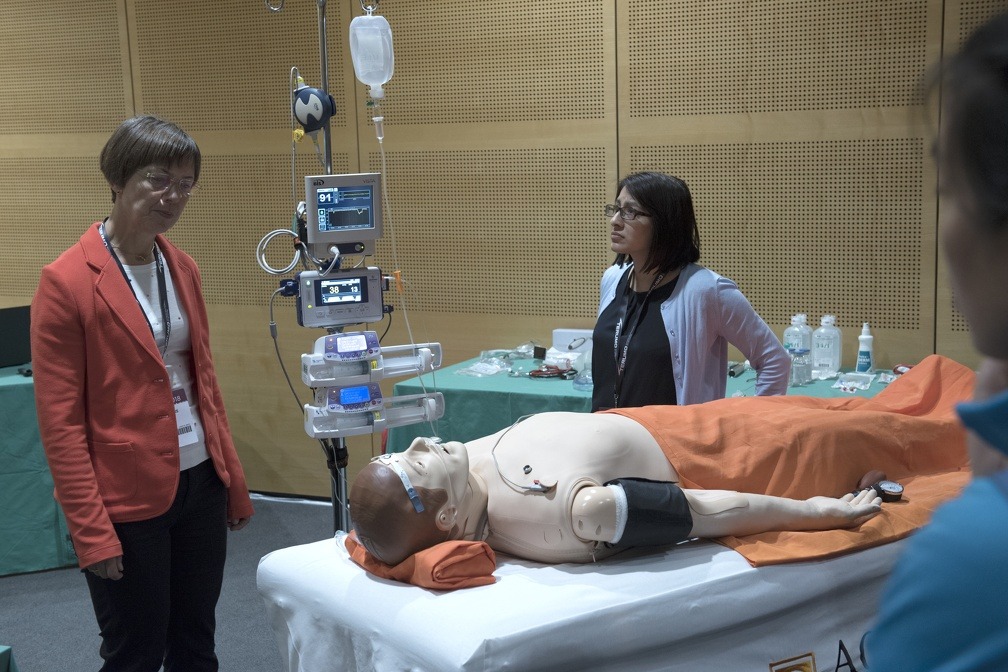Safe sedation application during IR procedures
These practical workshops will give participants the opportunity to perform procedural sedation (PSA) in a simulated environment and inform them about the most common respiratory problems during procedural sedation as well as which instruments are available to make these interventions safer.
The simulation set-up consists of a full-scale patient simulator with capnography, a sedation depth monitor (BIS) and iv-pumps. Participants will perform therapies under the supervision of AQAI’s experienced trainers. During the practical parts of the workshop, PSA under different aspects will be demonstrated and attendees will have the opportunity to gain hands-on experience.
Learning objectives
- To apply procedural sedation using different approaches.
- To identify complications and challenges during procedural sedation.
- To judge the value of various monitoring technologies.
- To recognise the additional value of capnography during sedation.
- To select appropriate sedation techniques in higher-risk patients.
- To identify limitations and situations where the help of an anaesthesiologist is mandatory.
Basic sessions
The basic sessions are intended for those who do not have much experience in PSA. Starting with a short introductory lecture, an overview of the current knowledge on safe PSA will be given accompanied by the actual guidelines and recommendations. The main drugs used are Midazolam and Fentanyl. During the workshop, the focus will be on respiratory compromise: we will show that pulse oximetry and oxygen are not enough to detect such complications early, and we will demonstrate that capnography is an important additional monitoring tool. In the hands-on part, these facts can be experienced in a simulated environment.
Advanced sessions
In the advanced sessions, participants can additionally perform simulated sedation in higher-risk patients, e.g., those with hypertonia, severe cardiac diseases, or pulmonary diseases like COPD. Participants in these sessions should have visited a basic session first or should already have substantial experience in procedural sedation. The session will start with a brief repetition of the basic facts with some information on Remimazolam and Dexmeditomedin and then focus on hands-on experience.
Please note: In this session, we will not discuss those topics that have been addressed in the basic session!
Advanced session – focus on Propofol
This workshop is dedicated to the use of Propofol for sedation. There are certain pharmacologic properties in the use of Propofol. In some guidelines, Propofol is the first choice for procedural sedation; the reasons for this will be given during this workshop. There are also legal requirements for the use of Propofol. In some countries, Propofol may only be used with an anaesthesiologist present during the sedation. Participants will do hands-on sedation with Propofol by repeated bolus application or continuous infusion following a loading bolus. In addition, this workshop gives a brief introduction and demonstration of TCI (Target Controlled Infusion) – to facilitate longer sedations for those procedures which are more challenging.
Please note: This session is solely dedicated to the use of Propofol in PSA!
Coordinators
M. Heinrichs (Mainz/DE), W. Heinrichs (Mainz/DE)
Timetable
Sunday, April 16
10:30-12:00 Basic
12:30-14:00 Basic
15:00-16:30 Advanced
Monday, April 17
08:30-10:00 Basic
10:30-12:00 Advanced
12:30-14:00 Propofol
How to participate
Please note that participation is free of charge, but places are limited and will be allocated on a first come, first served basis. As all hands-on training sessions offer practical medical training, participation is for qualified medical professionals only.


